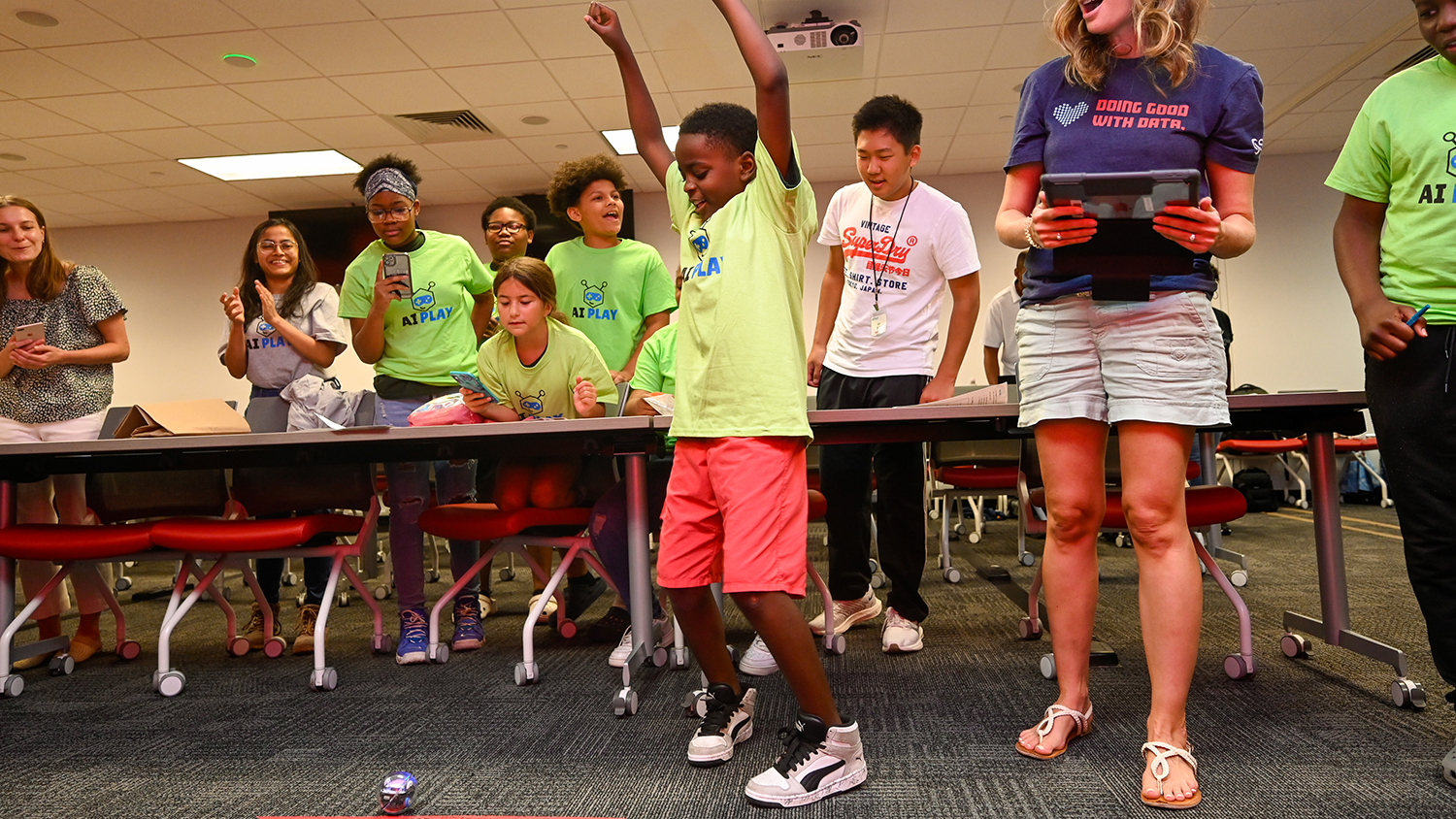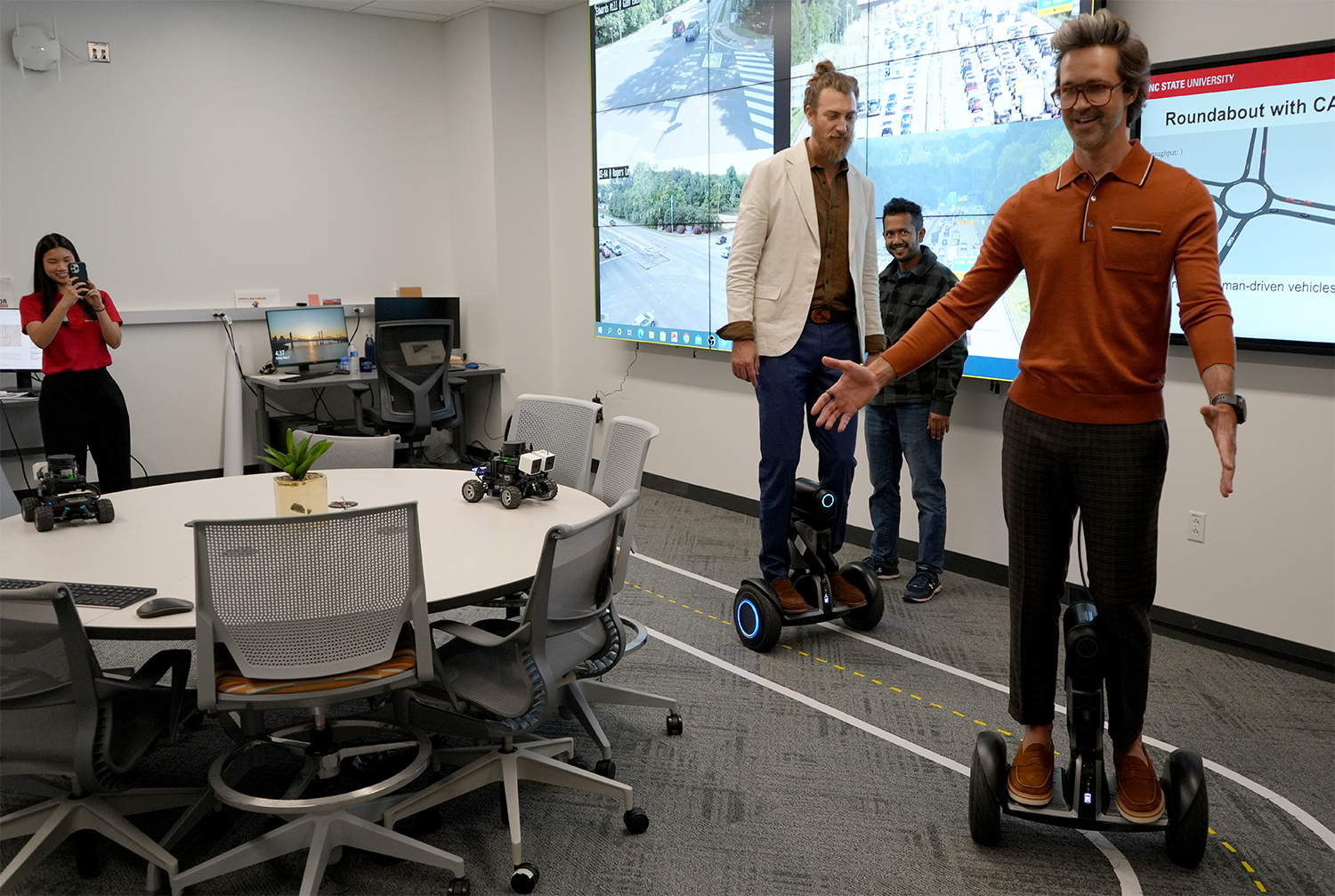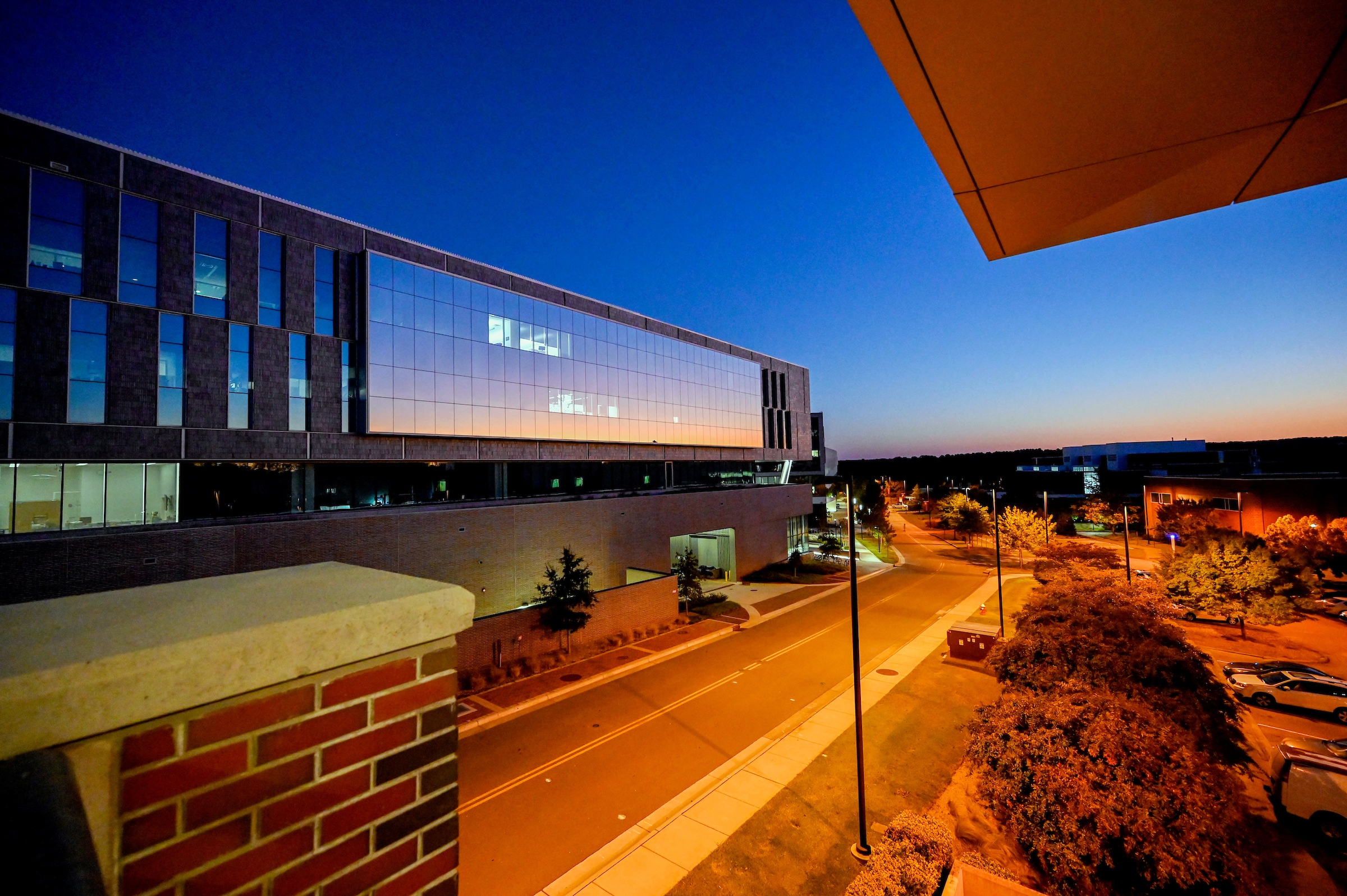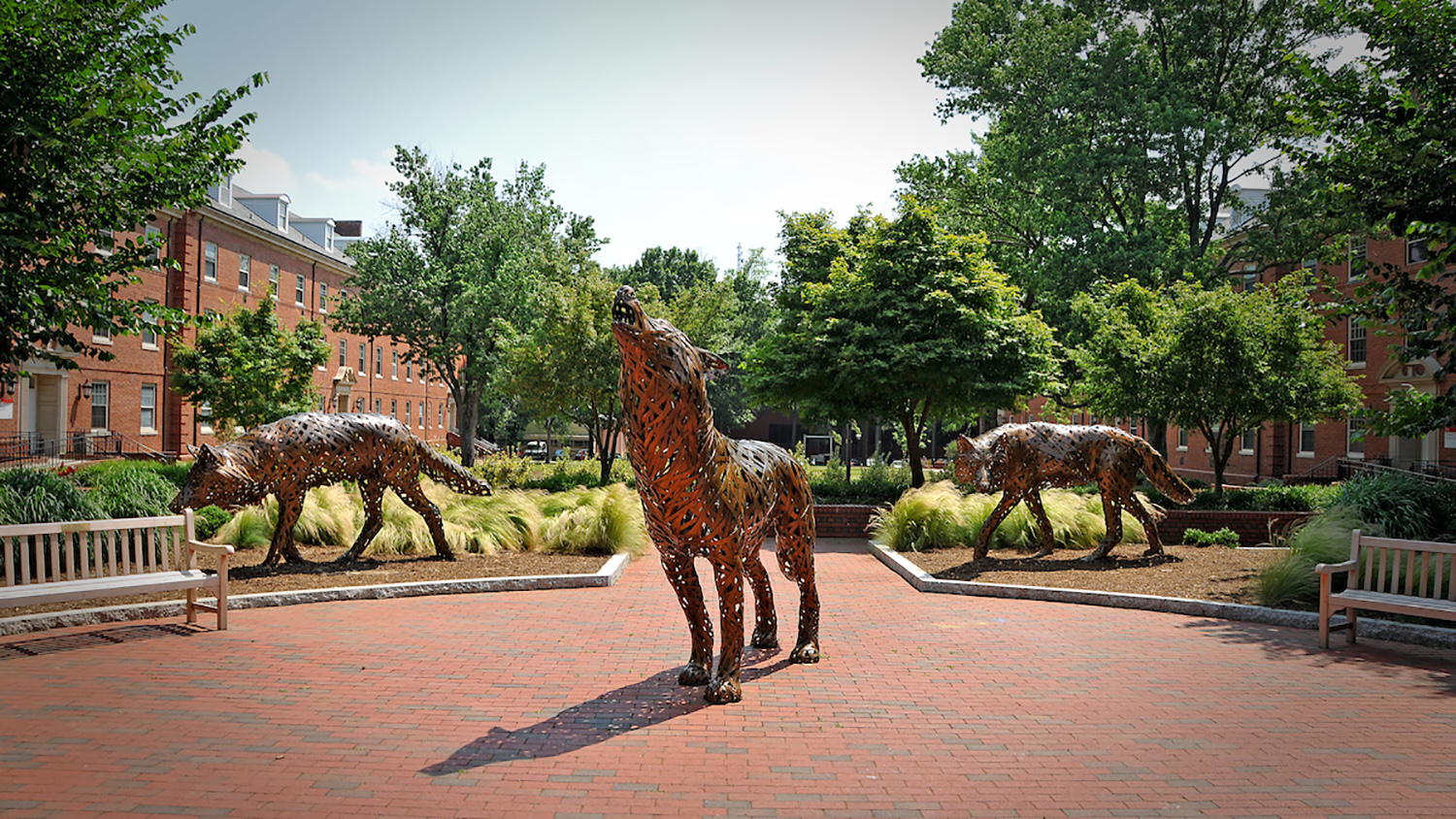It’s a Friday morning in early August, and students from eastern North Carolina are hard at work in a classroom on Centennial Campus. They are developing code to control a Sphero BOLT, a robotic ball that lights up, spins and rolls.
Their task? Work in teams to successfully guide the robot through two obstacle courses made of different colored squares.
“That’s a lot of coding,” said Keith, an energetic student from Pitt County who walked the courses before starting to work with his team. “Sounds hard.”
But with some thought, planning and reliance on what they’d learned earlier in the week, the students measured the distance between the course elements before using paper-based blocks to develop their code, which was then scanned by a tablet and uploaded to BOLT. Everyone watched with anticipation as each group successfully navigated BOLT through the obstacle courses. Keith even added a “victory dance” to his robot, programming it to spin three times and light up in rainbow colors when it crossed the finish line.
These students are the first group to go through a week-long artificial intelligence (AI)-focused camp organized by NC State University researchers. The camp was funded by the Innovative Technology Experiences for Students and Teachers program under the National Science Foundation (NSF) grant “Engaging Rural Students in Artificial Intelligence to Develop Pathways for Innovative Computing Careers” (NSF DRL-2148680). Most of the activities took place in Pitt County, where the students live, through a partnership with the Boys & Girls Clubs of the Coastal Plain. It culminated with a one-day visit to NC State.
Even before Chat Generative Pre-trained Transformer — or ChatGPT, a natural language processing chatbot — became wildly popular in late 2022, interaction with AI was becoming increasingly common. The NSF has emphasized a need for more K-12 learning experiences with AI. Through this grant, which runs from 2022-25, NC State researchers will engage with more than 500 students and 20 teachers.
“This project is looking at bringing AI learning activities to K-12 students with a focus on the middle grades,” explained Bradford Mott, principal investigator (PI), senior research scientist in NC State’s Center for Educational Informatics (CEI) and adjunct assistant professor in the Department of Computer Science. “And a unique aspect of the project is that we’re using game design and playful activities as a way of introducing students to those AI concepts.”
Learning through playing
An AI-focused camp was new for the computer science department, and existing computer science camps had limited exposure to AI learning experiences, explained Veronica Cateté, assistant professor of computer science and co-PI.
But the emphasis on game design is a common approach in computer science education activities. Games are fun, they engage both teachers and students, and they can be tailored to users’ interests.
Each day of the camp focused on different fundamentals of AI education: perception; representation and reasoning; machine learning; natural interaction; and AI ethics. These fundamental concepts are the backbone of AI Play, an AI-focused learning environment software platform that the researchers are developing as part of this grant.
…we’re using game design and playful activities as a way of introducing students to those AI concepts.”
– Bradford Mott
“We think teaching some AI concepts about natural language processing is particularly important for K-12 education,” said Wookhee Min, research scientist and co-PI. “So one activity is about creating conversational non-player characters in games. Students can create their own question and answer pairs and experience how AI works based on the question / answer pairs. They can ask any questions to the non-player characters. Behind the scenes, AI is operating to understand what the student asked and generate responses.”
By developing their own question / answer pairs, students will be able to infuse their own interests and personalities into the games, which can help increase their interest.
Using hands-on activities in AI Play, students can also learn about pathfinding for non-player characters, machine learning and generative AI to create language or images automatically.
As more students use AI Play, Min and other researchers will continue to refine the software. By next year, all the different concepts will be integrated into a single system.
“And AI ethics is a pervasive concept across all these activities,” Min said.
Broadening access to AI learning experiences
Students in rural communities have less exposure to computer science compared to students in urban areas. Danielle Boulden, a former CEI research scientist and co-PI who consults on the project, used to work in eastern North Carolina schools.
“There are definitely disparities in access to computer science, and even more so with artificial intelligence now,” Boulden said.
Jessica Vandenberg, a research scientist for CEI, said the team conducted interviews with teachers and students in rural communities to get a baseline understanding of what they knew about AI. In general, students knew more than teachers, who were pretty forthright with saying they didn’t understand much about AI. “We want to help build up their competency,” Vandenberg said.
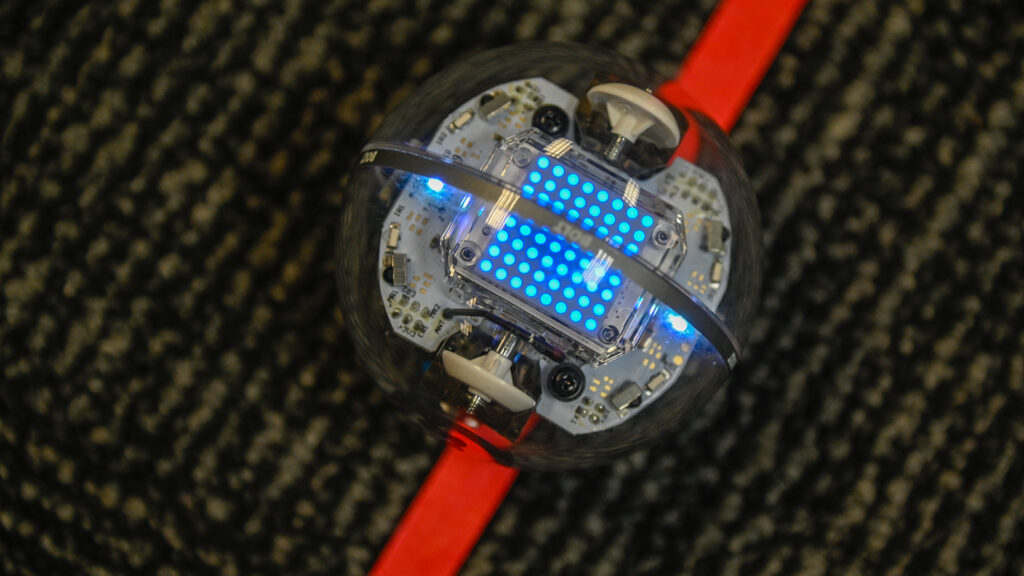
To broaden access beyond camps, there will be professional development opportunities to support teachers in integrating AI learning experiences in their schools. Experiences from conducting the first camp in Pitt County are directly informing the professional learning being planned for teachers.
Ultimately, the goal is to improve awareness of AI to help students and teachers understand AI and the ethical implications of using it, as well as to help foster student interest in computer science.
The team is now analyzing data collected during the camp to iteratively refine the AI learning activities in an effort to scale and broaden reach during the coming year.
- Categories:
